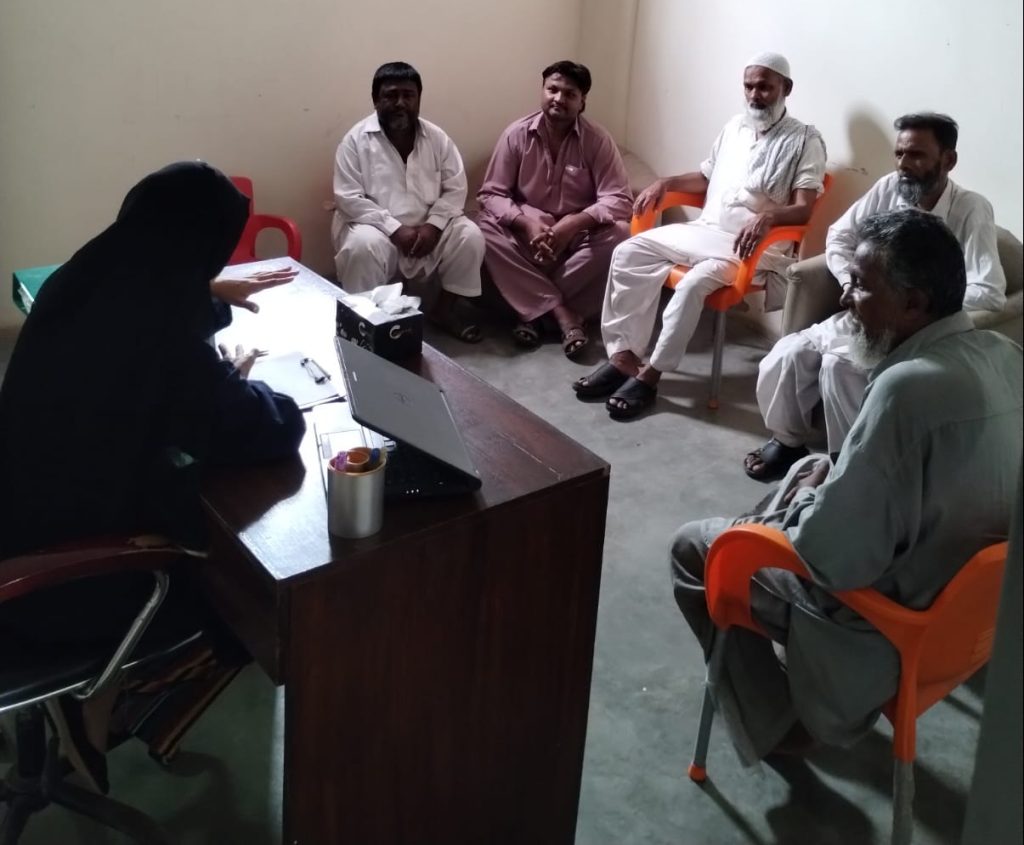Legal Aid and Protection
Statelessness Legal Aid Project
Pakistan hosts a significant number of stateless persons, primarily from Bengali, Bihari, and Rohingya communities, concentrated largely in Karachi. These individuals are either stateless or at risk of statelessness due to unresolved nationality issues.
As access to education, healthcare, and employment increasingly depends on the possession of computerized identity cards (CNICs), this population faces severe barriers to basic rights and essential services.
Although Pakistan is not a party to the 1954 and 1961 Statelessness Conventions, the country’s legal framework does include routes to citizenship—through birth, descent, marriage, or naturalization. However, limited awareness, bureaucratic hurdles, and inconsistent implementation have left thousands unrecognized and unprotected.
This legal invisibility traps families in cycles of poverty, affects multiple generations, and leaves entire communities neglected by development processes.
Challenges Faced by Stateless Communities
The lack of legal identity results in a wide range of social and economic hardships, including:
- Limited access to education and healthcare
- Inability to secure formal employment or register a business
- Restricted property rights and asset ownership barriers
- Difficulty in obtaining a bank account or financial support
- Risk of exploitation, detention, or expulsion due to legal vulnerability
Without identification, these communities remain invisible, unable to claim their rights, access protection, or benefit from state and humanitarian services.

Imkaan Legal Aid Project

Supported by UNHCR, the Imkaan Legal Aid Centre serves marginalized and stateless communities of Machar Colony and Karachi by reducing barriers to justice, documentation, and legal protection.The Centre works at both individual and institutional levels, focusing on:
- Legal assistance, advice, and pro-bono representation for stateless persons
- Advocacy and awareness-building with government and semi-government bodies to highlight legal pathways to nationality
- Community outreach and education sessions to help individuals understand and claim their rights
Through these efforts, the Legal Aid Centre enables individuals to secure identity documents, navigate citizenship procedures, and assert their legal rights with confidence.
Towards Inclusion and Legal Empowerment
The project emphasizes systemic advocacy and grassroots empowerment to address the root causes of statelessness. By bridging the gap between law and implementation, Imkaan works to ensure that legal identity becomes a pathway to dignity, protection, and inclusion.
The Legal Aid Centre continues to strengthen collaboration with local authorities, raise awareness among affected communities, and advocate for policy-level recognition and protection of stateless persons in Pakistan.
We look forward to support from interested individuals and groups to continue serving stateless communities in Karachi.
For more information on how you can help us, please click here to Donate.
Community awareness and participation is a core component of each of Imkaan Welfare Organization’s projects. Learn more about this initiative here.
